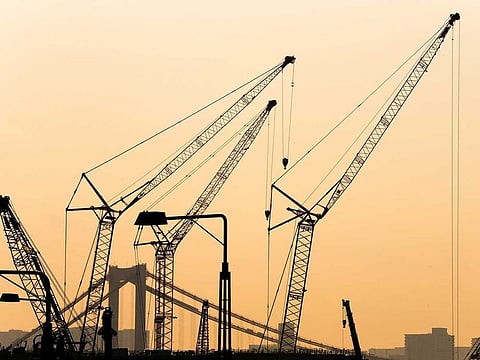UAE construction: When performance bonds get being used in bad faith
Project promoters keep encashing these bonds to tide over their own cashflow situation

Owing to the COVID-19 pandemic and its effects on cashflow in the construction industry, there have been a growing number of unsubstantiated and bad faith attempts to encash ‘performance guarantees’. This has led to an increase in litigation concerning such attempts, which can be both costly and time consuming.
A performance guarantee, also known as a performance bond, is a financial instrument issued by an insurance company or a bank to guarantee payment of an agreed sum in the event of a party failing to comply with its contractual obligations. In the construction industry, at the start of a project, a contractor would typically provide an employer with a performance guarantee, which guarantees payment of a certain amount should the contractor breach the contract.
The guaranteed amount usually does not exceed 10 per cent of the contract value. Should the contractor fail to comply with its performance obligations - or commit some other breach of the contract which leads to the employer suffering any financial loss - the employer is entitled to make a demand for payment of the amount guaranteed under the performance bond. Such a demand is known as a “call on the performance guarantee”.
It is important to understand that a performance guarantee is a self-standing contract, which is separate and distinct from the construction contract and governed by its own terms and conditions. As such, and depending on the exact wording of the specific performance guarantee, a tenet of on-demand performance guarantees is that following a written demand (or call) for payment, such amount must be immediately paid to the employer, notwithstanding any objections raised by the contractor.
In other words, performance guarantees follow a ‘pay now and argue later’ system. The reason for this is to provide certainty to an employer that it will have some form of security should a contractor fail to perform its contractual obligations properly. Naturally, this leaves contractors exposed to bad faith calls on performance guarantees.
Performance guarantees during COVID-19 times
Arguably, the biggest impact COVID-19 has had on the construction industry is the negative effect on companies' cashflow. An effective, albeit reprehensible, way for a cash strapped employer to free up its negative cashflow in the business is by making demand on a performance guarantee even in circumstances where a contractor has not failed to perform its obligations or committed a breach of contract.
This is because a performance guarantee must be paid out on demand, regardless of any objections raised by the contractor. As a result of the relative ease with which employers can obtain guaranteed amounts, and because of the pay now and argue later system, there have been an increased number of unsubstantiated and bad faith demands for payment on performance guarantees across the region.
Remedies
In the first instance, if there is the possibility of an employer making a call on a performance guarantee, it is advisable to engage with an employer in an attempt to dissuade such a call being made. If negotiations fail, or if an employer makes a call on a performance guarantee unexpectedly, a party is able to approach the courts for an attachment of the performance guarantee amount. Practically, this involves injuncting (or legally restraining) a bank or insurance company from making payment of the guarantee amount.
In such instances, there are three important things to note:
• When a call is made on a performance guarantee, a bank is generally under an obligation to make payment of the funds immediately. Practically, a bank usually gives 24 hours' notice before making payment so the window in which to bring an application to attach the performance guarantee is extremely limited;
• Attachment applications are extremely difficult to succeed with and generally require evidence that the call on the guarantee is made in bad faith or is unsubstantiated; and
• Within eight days of an attachment being successful, the attaching party is required to institute legal proceedings before the competent court or arbitration forum. Such legal proceedings can be extremely costly and time consuming and are not to be undertaken lightly.
Contractors should therefore be acutely aware of the challenges and risks surrounding performance guarantees and should act quickly and decisively in circumstances where an employer has made or is likely to make a bad faith call on a performance guarantee.









